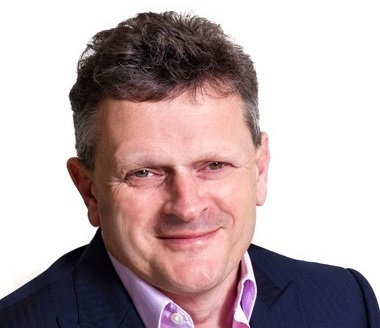CEO of Lewis Insight, Chris Lewis shares his take on a session from the recent MEF CONNECTS Omnichannel 2023, where he joined an expert panel to discuss the inclusive design approach to omnichannel and the key activities industry stakeholders should undertake right now to embrace inclusivity.
At the Mobile Ecosystem Forum Omnichannel event in London, Monica Paolini and I were joined by two special guests to bring even more diversity into the perspectives we are sharing on #Inclusively:
Chris McGinley from the Royal College of Art Helen Hamlyn Centre for Design (HHCD) explained that their postgraduate studies include a focus on Inclusive Design.
“The centre has been around for 30 years and it was the original director who coined the phrase ‘Inclusive Design’.
It is all about creating tools, processes and outcomes. And, perhaps more importantly, about defining a framework around a problem to aid inclusive design rather than necessarily solving a design problem. It is important not to just top and tail the design process with inclusion elements, but to have it embedded throughout the process. Nothing about us without us!
And, it is complex: even within the vision impairment community there are so many variants that determine how an individual experiences something.
Furthermore, we are all ageing: no matter what our lifestyle, genetics or luck, we are all going to gradually lose use of some faculties if not many!”
Chris admits the HHCD can’t do everything on its own, but through research and design it can bridge gaps between multiple suppliers and the diverse customer base being targeted.
Mark Knowles from Genesys, the customer experience platform company explained.
“Omnichannel is critical to delivering an inclusive experience whether people are making contact to complain (very prevalent), get help, transact or seek information. Empathy is the word that sums it up for Genesys. It shifts the emphasis onto the way the customer wants to do it rather than defining it by technology. And, of course, getting a response back in the format and time frame that suits the individual.
This shapes the whole design philosophy for Genesys, the ideology behind the way systems and processes are built and hence how interaction with the customer is built.
 This extends out into the accessibility space since the options include accessible and transferable options between types of interaction.”
This extends out into the accessibility space since the options include accessible and transferable options between types of interaction.”
Mark’s focus today is on public sector customers. At least 10% of RFP scoring is allocated to accessibility. Some RFPs are now in fact coming into Genesys with accessibility being mandatory.
Genesys has built its platform with Open APIs allowing for third party providers to be easily integrated into a project offering. With accessibility and inclusion built-in from scratch and the Open API options allowing more specialist accessibility to be brought in, Genesys feels it is covering the inclusion story.
The panel agreed that designing solutions for a wider audience is important. This is opposed to the old approach of designing something afterwards against each impairment. Plus, designing at scale embracing all impairments helps remove clashes between, for example, hearing impaired and vision impaired issues. And, given the ageing population, a solution which covers sight, hearing, dexterity, mobility and cognition can only hit a larger market.
Design is often seen as problem solving. The RCA believes in problem framing and then allowing all parties to design a solution understanding that framing.
A solution for arthritis for example, may focus on dexterity but the solution is equally applicable in making access easier for a wider range of users. In one project around kitchen products, when they got into the framing of the problem, it was evident that sight impairment was also a major consideration.
However, there can be conflicts within a framework for design. For instance, on Transport For London, some people living with Autism hate the repeated train announcements that were originally created to help the vision impaired.
Mark from Genesys explained that AI embedded throughout the platform and is particularly relevant to the front end, helping get people into the system using voice recognition (or text to voice) for simple tasks such as resetting passwords etc. It is building its GenAI within its own platform of data from customers and not on the generic LLMs. Conversational AI is then used to help the agent or customer to extract the relevant information.
Auto summarisation, is one of the key areas in saving agent time and making them more productive and accurate. The ability to have an automatically generated summary of an interaction, across all channels, is a powerful tool.
However, most importantly, the system is learning in the background about relationships and behaviours. Furthermore, being able to do a natural language search on a massive data set helps the agent give better service to the customer; with AI also being extended to the customer side to reduce direct contact further, and resolve queries quicker and easier. Always taking note of the customers preferences so let’s not forget the power of people talking to people.
Chris from the RCA added that there always has to be a blend between the technology and the human elements. Perhaps the balance has gone too far towards the technology side in the past and it’s time for a shift back to the human. “Absorbing information from a website can be like trying to drink from a fire hydrant.” AI should be able to reduce the flow and make it more focused.
And finally, from what was a wide-ranging discussion came the question: Does the increasing capability of AI to deal in natural language give the voice channel a boost and return to poll position after being relegated behind digital?
The HHDC is working with the British Standards Institute and Tata Consultancy Services around vocal accessibility. Privacy, security, and trust issues keep coming up but it’s the human factor and the fact that we like talking to each other that will support the great voice comeback.
This post originally appeared on the LewisInsight website and is republished here with kind permission.
MEF CONNECTS Omnichannel 2023
Taking place at the prestigious event facilities of The Honourable Society Of The Inner Temple in London MEF CONNECTS Omnichannel brought together stakeholders from across the Messaging ecosystem globally for the perfect stage to review mobile engagement strategies, build new partnerships, identify new target audiences, integrate innovative ideas and expand knowledge of this constantly evolving area.
Available on demand now – watch all the sessions now






